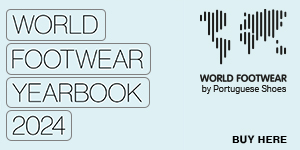New crowdfunding platform uses shoes as currency

Funds2Orgs, a for-profit social enterprise, launched the initiative Shoe Funding through their website allowing any user to raise funds for a special endeavor by collecting new and gently used shoes
The way it works is simple. Groups and individuals can run national campaigns asking supporters to donate a certain number of pairs of shoes. These can be dropped off at a local collection center or through a mailing label (which can be printed). Once the shoes are collected, Funds2Orgs pays the fundraiser for each donated pair.
Funds2Orgs has been organizing shoe drives to support microenterprises in developing countries since its inception in 2013. The innovation of this new web-based crowdfunding platform is the fact that it allows users to collect shoes across the US, as opposed to just do it in a specific city.
According to Funds2Org, local Shoe Funding campaigns have already raised more than 1 million US dollars for schools, charities and religious groups in a period of roughly a year.
"In the past, those hoping to raise money needed to ask others to dig into their wallets for support, but now they can simply dig into their closet," commented Funds2Orgs Founder and CEO Wayne Elsey, adding: "Not everyone has money to spare, but most have at least one pair of shoes they can part with."
Campaigns are managed on www.shoefunding.com and participants can create customized fundraiser webpages to include information on their fundraising mission, goals and to share images, videos and progress with their followers.
According to Funds2Orgs, Ideal Shoe Funding drives might include: Schools, churches and nonprofits funding new programs, mission trips, class trips, equipment or facilities; Entrepreneurs looking for seed capital to fund a new business, microenterprise, invention or endeavor or Individuals looking to support people in need or special causes
An example quoted by the organization is the story of Heather Beam, a mother who utilized the Funds2Orgs shoe drive program to help fund the costly process of adopting a child from the Philippines. In six months, Heather collected 2 500 US dollars aimed to adopt14-year-old Christine.
As for the donated shoes, Funds2Orgs will sell them for a nominal fee to budding entrepreneurs in developing nations, such as Haiti and Guatemala, to resell for their own microenterprises.
Funds2Orgs has been organizing shoe drives to support microenterprises in developing countries since its inception in 2013. The innovation of this new web-based crowdfunding platform is the fact that it allows users to collect shoes across the US, as opposed to just do it in a specific city.
According to Funds2Org, local Shoe Funding campaigns have already raised more than 1 million US dollars for schools, charities and religious groups in a period of roughly a year.
"In the past, those hoping to raise money needed to ask others to dig into their wallets for support, but now they can simply dig into their closet," commented Funds2Orgs Founder and CEO Wayne Elsey, adding: "Not everyone has money to spare, but most have at least one pair of shoes they can part with."
Campaigns are managed on www.shoefunding.com and participants can create customized fundraiser webpages to include information on their fundraising mission, goals and to share images, videos and progress with their followers.
According to Funds2Orgs, Ideal Shoe Funding drives might include: Schools, churches and nonprofits funding new programs, mission trips, class trips, equipment or facilities; Entrepreneurs looking for seed capital to fund a new business, microenterprise, invention or endeavor or Individuals looking to support people in need or special causes
An example quoted by the organization is the story of Heather Beam, a mother who utilized the Funds2Orgs shoe drive program to help fund the costly process of adopting a child from the Philippines. In six months, Heather collected 2 500 US dollars aimed to adopt14-year-old Christine.
As for the donated shoes, Funds2Orgs will sell them for a nominal fee to budding entrepreneurs in developing nations, such as Haiti and Guatemala, to resell for their own microenterprises.










